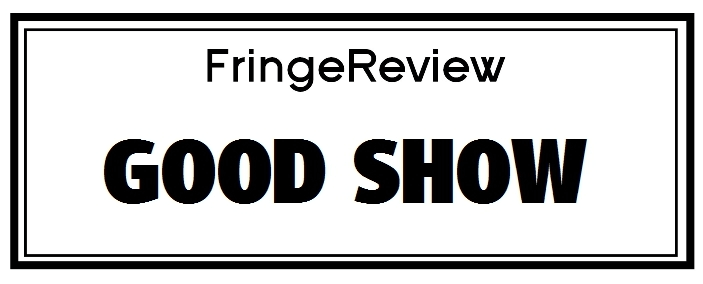Brighton Year-Round 2023
Wish You Were Dead
Joshua Andrew and Peter James

Genre: Adaptation, Contemporary, Drama, Mainstream Theatre, New Writing, Theatre
Venue: Theatre Royal Brighton
Festival: Brighton Year-Round
Low Down
There’s a good enough story for this to be recalibrated. Though If you’re a James fan, you’ll need to see this.
Written by Peter James, Adapted by Shaun McKenna Directed by Jonathan O’Boyle, Designer Michael Holt, Lighting Designer Jason Taylor, Composer & Sound Designer Max Pappenheim.
Till March 25th
Review
Careful what you book for. Peter James was on holiday with his wife in August 2018 when the Chateau they chose loomed up in the rain. Some of what happened next – including Berlioz’ Grand Messe des Morts – found its way straight into the novella Wish You Were Dead, here adapted by Shaun McKenna. I mean, Sleeping With the Enemy and chorus (you can’t forget that Symphonie Fantastique moment, can you?)
And that’s the point here. Like Hamlet it’s full of quotations, especially at the start. A chateau cut off, think Mousetrap. A set with a suit of armour (they don’t do that in France!) think every black-and-white shocker. As for the plot, it’s the first time I’ve ever thought of reticent, thoughtful Roy Grace as Dick Barton throwing out “you’ll never get away with it” and “with one bound” even if it’s not quite as simple as that. Others have read the novella, and I can’t believe the tonal values and sometimes redundant lines can all be by James.
Directed by Jonathan O’Boyle it’s a short fiction stretched on a rack two ways (like Charles Hawtrey in Carry On Henry). James’ story has serious thriller elements, but here with sometimes over-loud projection, it plays like a spoilt comedy-thriller. So no plot spoilers here.
Roy Grace (George Rainsford), wife Cleo Grace (Giovanna Fletcher), and their child’s nanny American Kaitlynn Carter (Gemma Stroyan), stumble into a cluttered pyramidal set designed Michael Holt, initially dark. Later an upstairs bedroom suddenly lights up, with a panel behind, and below a foreshortened lobby full of bric-a-brac including sofas and that suit of armour sees most of the action. It’s simply clumsy and the cast bar one actor make little use of what opportunities it does afford.
There’s some nice stained-glass window-work opposite, and lighting designer Jason Taylor points up neat moments: most effective of all a hopeless dawn. Max Pappenheim, one of the great sound designers and capable of coming up with the Berlioz himself, does seem on this occasion to amp up just a little too much; that can be remedied.
Just like James, the trio are greeted with surly ill-grace by Madame L’Evéque (Rebecca McKinnis), who nevertheless knows who they are; and later encounter the fleeting Vicomte L’Evéque (Vince Mallet, we’re told). Grace though holidaying is about to wrap up the notorious Brighton Esmonde family firm, trying to get a signal to loyal colleague Glenn Branson (Leon Stewart, a brief but believable Branson too) who’s pursuing an Esmonde down the Eurotunnel. Meanwhile their other colleague and Kaitlynn’s boyfriend Jack Alexander (Alex Stedman) was meant to be here to greet them.
The vibrant presence of Curtis (Clive Mantle) animates this show, and Mantle revels in his role’s cackle. He’s also most at home in the set, ranging over it as if he owns the place. Later arrival Brent (Callum Sheridan-Lee) plays his part convincingly, though French Policeman (Christopher Killik) has no lines, and he’s not the only one – a cast of nine seems slightly excessive.
Rainsford is appealing and warm, quite youthful for the role; though pitching rather volubly at times, that’ll settle. The script doesn’t lend him enough Grace to telegraph the role’s inwardness. Fletcher often plays the opposite, often quiet then dramatically not. As Cleo’s a pathologist Fletcher’s given few lines that could build her part, except a key linguistic recognition. Stroyan makes a convincingly optimistic young American, and McKinnis carries her swervy part off with aplomb.
There’s the obvious, then the illogical. We mostly guess what coded references over the phone mean, though later plot-points falling from that could have been improved on.
If you’re a James fan, you’ll need to see this. There are a few acting moments to relish too, principally from Mantle. If you’ve not seen Roy Grace on stage, it’s not the play to judge the James theatre franchise by. And if you’re looking for Grace via the novels and indeed TV adaptation, with little for Rainsford to develop, there’s only a ghost in this machine.
The cast are often given undernourished characters. It’s no reflection on them if they can’t elevate their roles; they deserve better. So does the story. There’s a good enough one for this to be recalibrated; I’m sure it’ll return richer for that.


















































